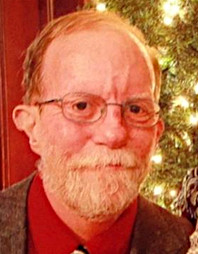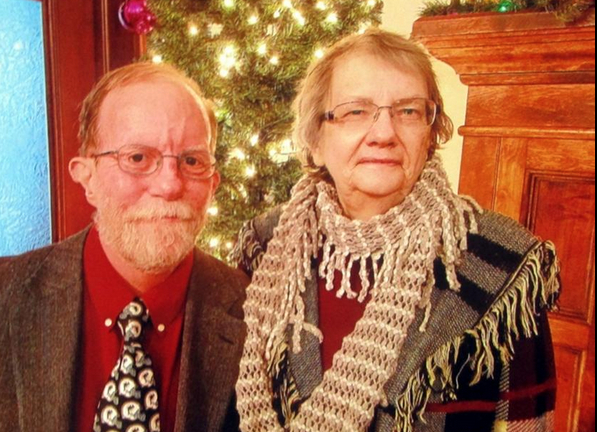STUDY IN THE ASCENT PSALMS

INTRODUCTION
Today is our seventh study of the “Ascent Psalms” – Psalms 120-134. You can check out the first 6 studies in the “BLOG/JEREMY STOPFORD” section of this OUTSTANDING web site of Brother Becker!!!
More importantly, are you applying these amazing psalms to YOUR life?
OUR THEME VERSE
“Blessed is the man whose strength is in You, whose heart is set on pilgrimage. (Psalm 84:5 NKJV). Have you set YOUR heart on “pilgrimage”? The Christian life is a…JOURNEY! And “Journey” = DISCIPLESHIP! So…are you daily focused: you’ve set your heart on pilgrimage, you’re on a journey, and the result is the learning of a disciple for Jesus!! True for you?
TODAY WE ARE IN PSALM 126
Psalm 126 New King James Version (NKJV)
A Joyful Return to Zion. A Song of Ascents.
When the Lord brought back the captivity of Zion,
We were like those who dream.
2 Then our mouth was filled with laughter,
And our tongue with singing.
Then they said among the nations,
“The Lord has done great things for them.”
3 The Lord has done great things for us,
And we are glad.
4 Bring back our captivity, O Lord,
As the streams in the South.
5 Those who sow in tears
Shall reap in joy.
6 He who continually goes forth weeping,
Bearing seed for sowing,
Shall doubtless come again with rejoicing,
Bringing his sheaves with him.
OUTLINE OF PSALM 126 (Dr. W. Graham Scroggie).
Title & Outline: “Peace (vs. 1-3) and Plenty (vs. 4-6)”
SOME INTERESTING INSIGHTS
What ONE word best describes this psalm for you? Got it? How about “JOY”?
Look at the psalm’s progression:
“Dream” (v. 1), which leads to…
“Laughter” (v. 2a) which leads to…
“Singing” (v. 2b) which leads to…
“We are glad) (v. 3) which leads to…
“Tears” (v. 5a) which leads to…
“JOY” (v. 5b) !!!
“Brought back from captivity” [or, “those of the captivity”] could literally mean “restoring the fortunes”. Can you think of a time when that happened to you? This is a psalm of a sudden “turning the tide” from captivity to freedom, from being under the oppression (whether physical or mental) to a Divinely produced FREEDOM!
Let’s look for a brief moment at the phrase at the end of verse 4, “as the streams in the South.” The psalmist was praying for a revival of sorts! He was praying for the return of the captivity, that is, specifically a return to Jerusalem of those who were in captivity on foreign lands throughout the then known world. In that “restoration of fortune”, the psalmist described it as “the streams in the South”. What does that mean?
Look at Isaiah 35:6:
“Then the lame shall leap like a deer,
And the tongue of the dumb sing.
For waters shall burst forth in the wilderness,
And streams in the desert.”
There is a real sense that one day in a future fulfilled millennial kingdom, the parched land of Israel will be once again a flowering, productive land. Isaiah looked forward to that day, and inspirationally referred to it as “streams in the desert”!
Even so, our Psalmist understood that insight. The “South” refers to the Negev Desert, a parched land which is for all intents and purposes good for nothing. So both the Psalmist and Isaiah understood that the Lord Himself can turn deserts into productive land.
And by application, our Psalmist understands that there is a figurative desert in each of our hearts. And the Lord can change that desert into productivity for the Lord Jesus! That, too, is part of the amazing “returning from captivity” as expressed in this psalm.
Let’s zero in for a look at verse 5. “Sowing” and “reaping” and “in joy” usually ONLY follow what? LABOR FOR THE MASTER! Look at 2 Corinthians 9:6, “But this I say: He who sows sparingly will also reap sparingly, and he who sows bountifully will also reap bountifully.” Let me give you a personal example – and these truths are NOT limited just to the pastorate! In the thirty plus years I had the privilege of serving the Lord as a pastor, I would often pray, “Lord, bring people into your house on Sunday.” Haven’t you prayed that prayer, too? And after none new would come, I would pray again, “Lord, I asked you for new people, none new came, so I’m asking you again: bring people into your house on Sunday.” And after none new came, you know what I did? Pray? Well, yes, AND…I went out and visited people the Lord laid upon my heart to visit! Often people I knew who were going through hard times. Often people who perhaps had been to church months or even years ago, but hadn’t been back for one reason or another – BUT NO ONE EVER FOUND OUT WHY! Visitation! SOWING! And a funny thing happened! Not immediately, but regularly – as there was SOWING, there was…REAPING!
NOTE the challenge of verse 6: “continually”. Sharing the love of God in Jesus is not a “once for all” thing. It is a CURRENT AFFAIR WITH JESUS! You got that right! If someone were to ask you, “have you ever shared about the love of God in Christ?”, your answer should NOT ONLY be “oh, right after I was saved, in 1971, I couldn’t shut up for Jesus!”. NO, NO! It should be “CONTINUALLY!”. You may not remember places, persons, or incidents. But our lives should be a CONTINUAL sowing the seed of the gospel of Christ and the glory of God in many ways.
CONCLUDING THOUGHT
It would be easy to overlook the challenging phrase at the end of verse 6, “bringing his sheaves with him” – the source of the wonderful hymn, “Bringing in the Sheaves.” What does it mean? Listen to Moses’ pointed instructions of Leviticus 23:10-11a:
“10 “Speak to the children of Israel, and say to them: ‘When you come into the land which I give to you, and reap its harvest, then you shall bring a sheaf of the firstfruits of your harvest to the priest. 11 He shall wave the sheaf before the Lord…”
What does it mean to “bring” in the “sheaf”? It means the HARVEST!!! And you WAVE that SHEAF before the LORD, a thanksgiving to Him for what He has produced through your faithful (or perhaps even measly!) efforts!
Let me close with an illustration. A number of years ago, I was meeting with some college friends on the beach of Fort Lauderdale during Easter break. Somehow, in the midst of our playing beach volleyball, swimming, and, yes, sun bathing – the topic of Jesus would come up. One of my friends, also a Christian, would join me in sharing the gospel. After several days of this routine, someone said at the start of that day’s beach visit, “DO NOT BRING JESUS UP AGAIN, PLEASE!”. We didn’t, but Jesus did! Later that fall when the new school year began, one of those beach goers came to me at college and said, “you didn’t say a word, but Jesus did! And I could not escape His love for me at Calvary. I have trusted Him as my Savior.” And a sheaf of rejoicing was raised before the Lord!
The Evangelist D. L. Moody is attributed to be the author of this wise saying, “Share the gospel at all costs. And if necessary, use words.”
Bringing in the sheaves, bringing in the sheaves
We shall come rejoicing, bringing in the sheaves!
– – – Knowles Shaw, author (1874)

